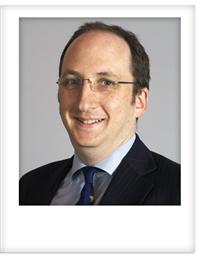Measurement is important because hard numbers can prove things that vague impressions cannot. Measuring the severity of TS is notoriously difficult for a variety of reasons. First, the tics are very variable, even from hour to hour in some people. They also vary over longer time-frames (the famous 'waxing and waning'). In addition, a certain level of tics can bother one person more than another and many people with mild tics might find that tics are not their main problem, while OCD or ADHD may be a big problem. Many of the trials of treatment of tics can be weakened by these problems. There is even a case of deep brain stimulation (DBS) where the patient's tics were a lot better after the operation, but they they didn't actually feel any better as they still had the urge to tic- an example of hard numbers not telling the truth of the situation.
This study (ncbi.nlm.nih.gov/pubmed/210... describes an automatic electronic device to measure tic activity. This could be useful in studies of treatment in allowing a longer assessment period without the person being watched by a researcher or video camera.
This could be useful and better than scales filled out by a doctor, but doesn't get around the problem of measuring what really matters to an individual patient. To do this it is more important to try and make a measurement of quality of life (QOL) rather than just severity of tics. A questionnaire to measure QOL has already been designed and Tourettes Action members may have helped in that project. A new English and Italian publication (ncbi.nlm.nih.gov/pubmed/210... has now looked what factors contributed to a good or poor QOL in TS patients. This was confined by the design of the QOL questionnaire- for instance some of the questions relate to obsessionality, concentration or happiness so OCD, ADHD and depression automatically have an important influence on the results. Interestingly the severity of tics measured by other methods did not cause worse QOL.
Lastly, this American study (ncbi.nlm.nih.gov/pubmed/210... using an internet questionnaire of over 200 children and their parents looked at the impairment caused by tics and did find a correlation (relationship) of increasing tic severity and physical, social, family, academic and psychological functioning, with comorbidies like OCD or ADHD making the situation worse.
One could say the these two studies disagree- the English result is that more severe tics are not that important for a poorer good quality of life, while the American results say the opposite. The problem comes down to what is actually being measured when we talk about QOL. Some may say the problem with severe tics is the attitude of other people rather than TS itself but, in the end, if people feel impaired as a result, then we need to continue to try and find ways of supporting them. I suspect there will never be one way of measuring TS that works for everyone and for every research purpose, and this is a very real problem in assessing the effectiveness of treatments.
